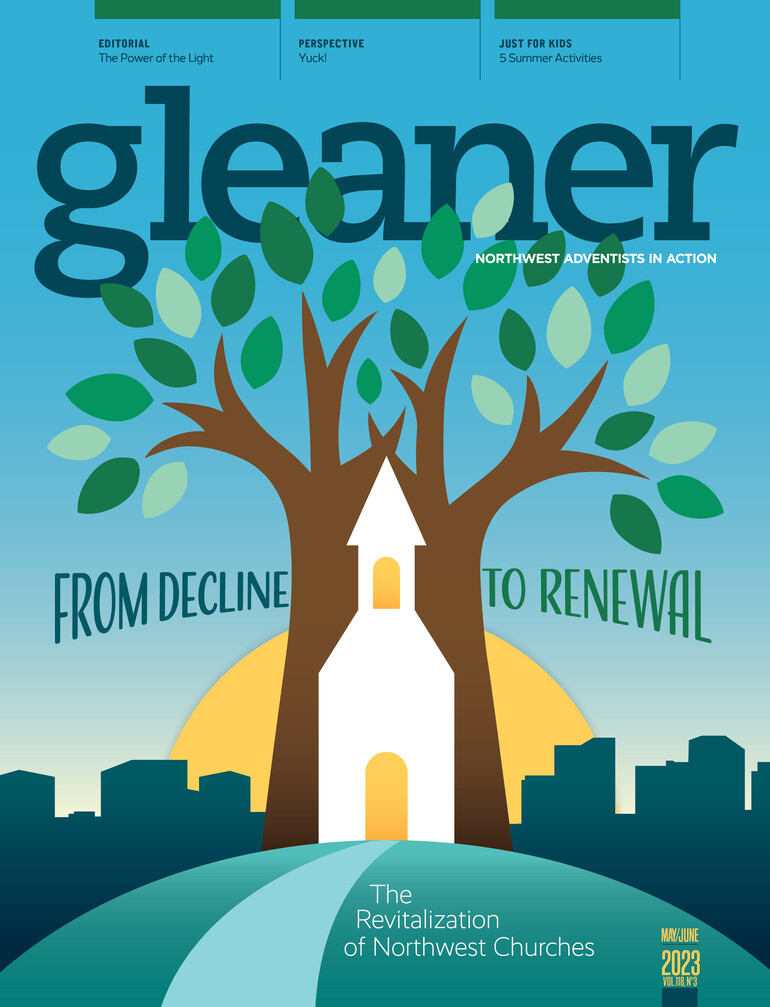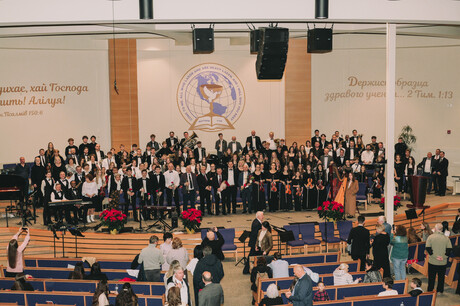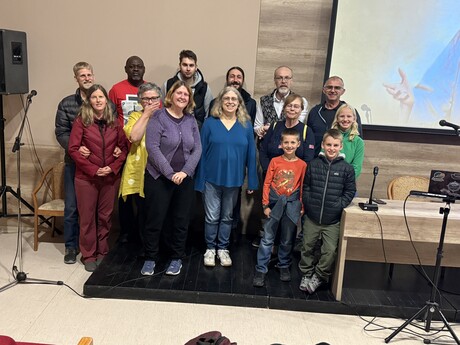Three weeks before the war in Ukraine broke out, Andrii Kolodii, pastor, was making plans to move to the U.S. to pastor the new and fast-growing Slavic American Mission Company — now called Ukrainian Adventist Church — in Federal Way, Washington.
He had already dropped off his sons at the airport so they could reunite with their grandparents in the U.S., and he and his wife planned to travel to Seattle soon after.
Little did he know how his mission would be delayed for almost a year. The war changed all the family’s plans.
Three days after the war started, Kolodii was able to drive his wife and her parents from Kiev to the western part of Ukraine to be with relatives. He went back home a few days later.
“I personally did not go to any bunk shelter,” Kolodii said. “When the sirens go off every 40 minutes, it’s just not practical to run down the stairs when you live on the 16th floor. I would hide in the foyer of our apartment.”
Now, nearly a year later in January 2023, Kolodii and his family are getting established together in their new ministry assignment in Federal Way.
Kolodii shared that it was an internal struggle to come to the U.S., to leave his motherland country in a time of need, but he knew the Ukrainian congregation here was waiting, calling and connecting.
Ukrainian Adventist Church in Federal Way started as a church plant on Feb. 24, 2020 with with no idea about the ensuing pandemic or the future significance of this date in Ukrainian history.
They grew rapidly during the pandemic with more than 200 members now attending and involved in ministry. They were formed into a new church family on March 11, 2023 and are now seeking their own house of prayer for mission and ministry.
“In any case, by God’s grace, we are here. I ask for your support and prayers as I learn the language and organize work with my new church,” Kolodii requested.
Ministry Miracles in Ukraine
“I am happy to report that the church in Ukraine is alive and active — despite the war, rockets, death and hardship,” Kolodii shared with Washington Conference pastors through translator Vitali Oliinik in January. “Almost everywhere our church buildings became shelters. Most of them have basements that were used as shelters. People are receiving help, food and shelter.”
Before the war, an estimated 60,000 Adventist members lived in Ukraine. A number of members were drafted to serve. Many church members died, including one pastor who was also trained as a medical doctor. Some churches were destroyed.
In the initial days of the war, many leaders and members left the area. Some stayed in a basement next to the union office in Kiev, including two Hope Channel personnel who continued ministering to people by producing content throughout the first phase.
In the subsequent weeks, pastors and leaders returned to their communities in Ukraine, and the church is back to serving at full capacity. The difficulties of war are motivating people to serve and help each other, so the church continues to grow.
One Adventist church in the northern part of Ukraine experienced a particular miracle. A rocket hit the church, went through a side wall at an angle, landed outside the church and did not explode.
“At the time, the pastor and many of the church members were in the basement,” Kolodii recounted. “The pastor is a friend of mine from childhood.”
An Unknown Future
“It’s hard to tell [how the war will transpire]. I’m not a prophet, so therefore no specific prediction,” Kolodii said in answering questions from his fellow pastoral colleagues in western Washington. “However, I can tell you a little about those people who are defending it. These are my friends, some are my relatives, people that I know.”
After 30 years of independence from the Soviet Union, Kolodii explained, Ukraine has a new generation of people whose mindset is different from older generations. They have a mentality of freedom. For those who are 40 or 50 years of age or older, there are some nostalgic sentiments connected to the Soviet Union era.
“Yet, the war destroyed the remnants of illusions and affections to the Russian world,” Kolodii said, who also shared population estimates of 25–30 million Ukrainians to 120 million Russians. “There is a new generation with a new approach and new tactics who are on the frontline.”
Still, the future is unknown.
“The hope is that God will do something within Russian to change the climate,” Kolodii said. “There is great help from the world community in Ukraine, both weapons and finances, but for reasons unknown to me, it’s not enough.”
“As Christians, we of course do not rely on weapons,” Kolodii continued. “Each day in Ukraine and in Ukrainian churches here in the U.S. and all around the world, people are gathering to pray for God to intervene and to save us.”







